Implantation

Currently, minimally invasive methods of dental implants are gaining popularity. Moreover, individual clinics have gone further and are already actively promoting non-surgical implantation of teeth, which is supposedly carried out without gum cuts and even almost bloodless. But how is this possible? How can an implant, which is essentially a titanium screw, be inserted into the jaw bone, covered with soft gum tissue, without surgery? We will talk about how not to confuse advertising tricks with the actual state of things ...
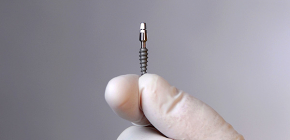
Some people mistakenly believe that dental implants are harmful to health and not all lucky ones take root well. And how many horror stories about this topic on the Internet can’t be counted: they say that the implants of the maxillary sinus sometimes pierce due to a medical error, and a titanium screw can go out into the nasal cavity, the orbit of the eye is sometimes damaged, and terrible inflammations develop with the gangrene of the jaw. But what is the actual situation like - can implant placement really harm the patient’s health? Let's figure it out ...
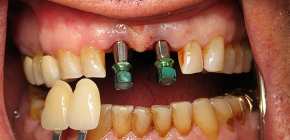
Over the years, it was believed that the chances of a successful outcome of dental implantation in patients with periodontitis and periodontal disease are generally small - the decrease in bone tissue and the presence of foci of infection in neighboring teeth created high risks of rejection of the implantable structure. However, the successes of modern dentistry have made their own corrections, and today the main question is only in what clinical situations these or other technologies and implant systems can be used to maximize treatment success and minimize complication risks ...
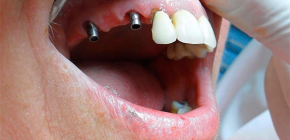
The dental implantation procedure, like any kind of surgical intervention, is associated with a certain risk of developing unpleasant complications. However, information on the Internet about these complications is often so distorted and exaggerated that impressionable people can simply discourage any desire to perform prosthetics on implants: some write about terrifying rejections, bleeding, suppuration, terrible swelling on the face, etc. Let's see how in reality all this can happen, what adverse outcomes are possible and, most importantly, how to protect yourself from them as much as possible ...
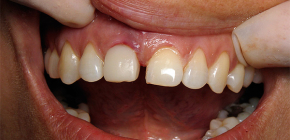
Despite the significant successes of dentistry, the implantation of dental implants does not always proceed smoothly, and in rare cases, the body can reject the artificial material. The rejection process can begin already in the first days after implant placement, and can be initiated by certain factors even 10 years after the operation. Let's look at what causes can lead to dangerous inflammation (peri-implantitis), what symptoms it is usually accompanied by, and what can be done to ensure that the engraftment passes as quickly as possible and without complications ...
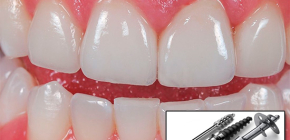
The principles of basal implantation were invented a long time ago: back in the 60s of the last century, and improved and adapted only in the 90s. In Russia, they talked about her only at the beginning of the XXI century, and the active installation of implants occurred in 2010-2013.The author’s methodology of the Swiss doctor of sciences Stefan Ide caused the discontent of many patients who were in his hands and caused a lot of controversy around the basal implants - some dentists advocated this system, but there were many experts against it. Literally in recent years, basal implantation has been actively promoted in Russia, but not by Stefan Ide, but by his students: Russian dentists in the field of implantation. While this technique is positioned as the latest, exclusive and relatively inexpensive, it allows literally 3-5 days to return a person the opportunity to chew and smile. However, there are still disputes among dentists around the world about the effectiveness of basal implantation and the prospects for its further widespread adoption in practice ...
